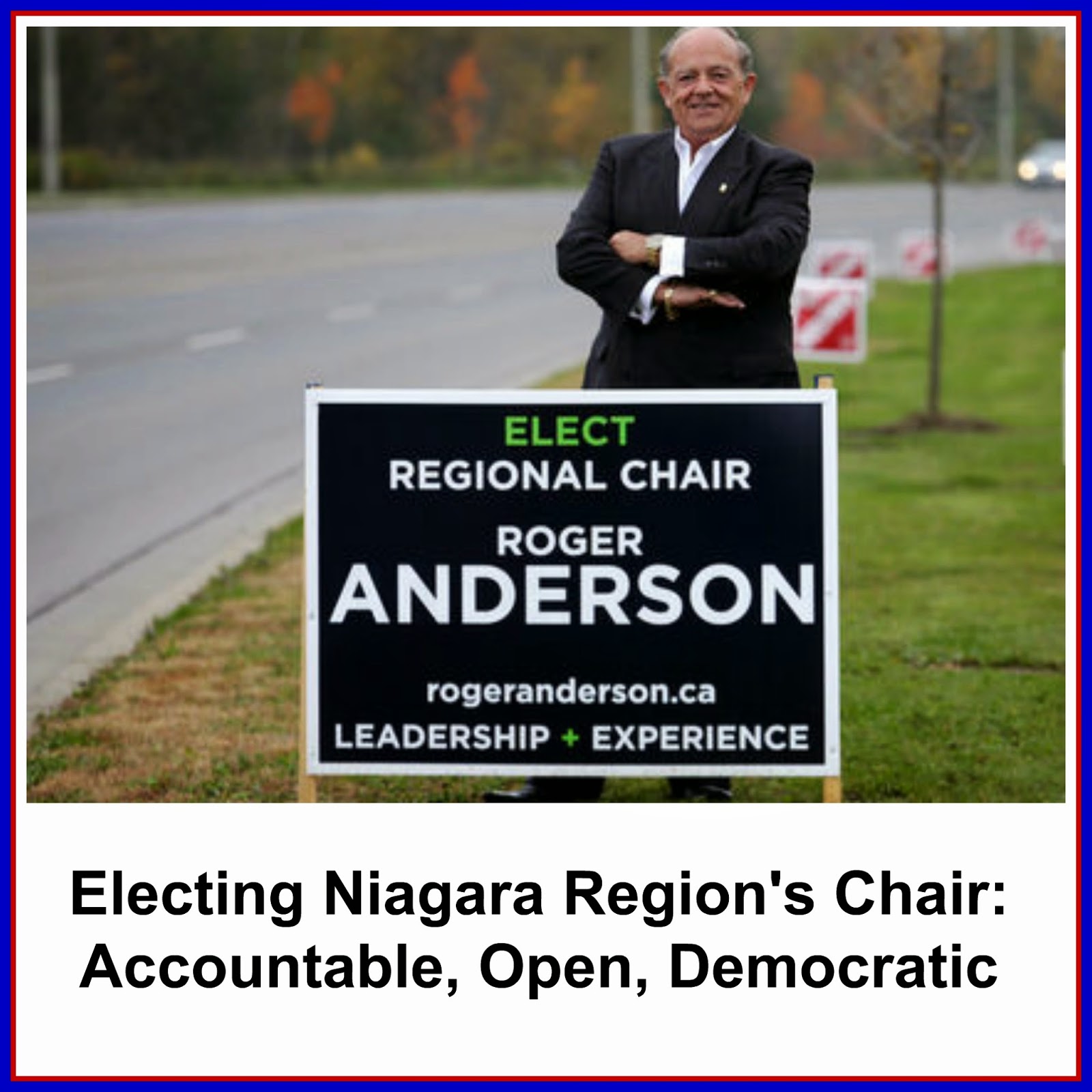 |
| Roger Anderson was victorious as the first elected chair of Durham Region, 2014. |
Role of the Chair:
The full-time Regional Chair sets the legislative and economic agendas for the Region, presides over Council meetings, votes on every committee, and is the “face” of Niagara with Provincial, National, and other governments.
So, while serving as the face of the entire Niagara Region, ironically, the Regional Chair is only accountable to the majority of Regional Councillors.
Baldwin Act & County Councils:
Our current process of appointing a sitting member of Council as chair comes from the Baldwin Act of 1849, which established local County Councils. The names of the annually appointed, former Wardens of Welland County and Lincoln County are etched on two plaques at the Regional HQ (across from Brock University).
When they first created Regional Governments in the 1970s, the Province also appointed the first Regional Chairs. After our first Chair (John Campbell) retired in 1985, Council appointed one of its own as Chair (Wilber Dick).
But, this appointment differs significantly from County Councils days – the new Chair give up his or her seat and is appointed for the entire four-year term of Council.
Lagging Behind Other Regions:
All other Ontario Regional governments have already either adopted a more accountable and democratic process to directly elect their Regional Chair at large or are in the process of doing so.
Waterloo Region (Kitchener, Waterloo, Cambridge, Wilmot, Wellesley, Woolwich, and North Dumfries) began electing their Chair 17 years ago. Halton Region (Burlington, Oakville, Milton, and Halton Hills) has elected a Regional Chair since 2000. Durham Region (Pickering, Ajax, Uxbridge, Oshawa, Whitby, and Clarington) first elected their Regional Chair last Fall.
A bill to elect the York Region (Aurora, East Gwillimbury, Georgina, King, Markham, Newmarket, Richmond Hill, Vaughan, Whitchurch–Stouffville) Chair “at large” is currently before the Ontario Legislature. Finally, in 2013, Peel Regional Council (Brampton, Mississauga, and Caledon) directed staff to report in 2015 on options to directly elect their Chair for 2018.
It’s Time for Niagara:
It’s clear that the way in which Niagara Region currently appoints our Regional Chair is antiquated, undemocratic, and out-of-synch with all other Regions in Ontario.
That’s why I am making a motion at Regional Council on Thursday to begin the process to change toward a directly elected Chair. If you agree, please contact your Regional Councillor.
Let's work together now to become more open, transparent, accountable, and democratic in Niagara!



